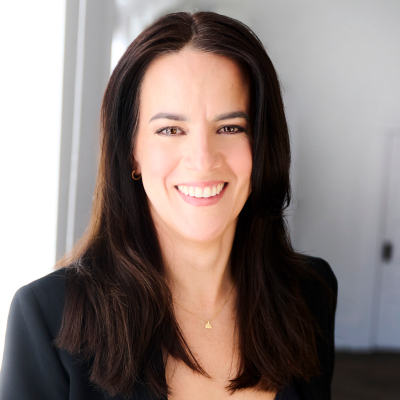This is the third in a series of articles about family enterprise founders who are contemplating an exit by Elke Rubach, president of Rubach Wealth. In this series, we explore the quiet fatigue that founders rarely admit to, why holding on too long can damage wealth and relationships, how silence can breed entitlement, and how to redefine retirement.
In almost every culture, there’s a version of the same warning about family wealth: “Shirtsleeves to shirtsleeves in three generations.” In China, it’s “rice to rice.” In Latin America, they say, “The heir’s son becomes the grandson’s employee.”
In other words, without shared values, financial literacy and strong structures, even substantial fortunes can erode within a generation or two.
It’s a memorable saying, but not everyone agrees it’s universally true. Research in Canada and the U.S. suggests the pattern doesn’t play out in every family.
Still, whether you call it “shirtsleeves” or something else, the challenge is the same: Building wealth is hard, but keeping it across generations requires an entirely different skillset.
Why generational wealth fades
It’s rarely because the investments fail. More often, it’s because the meaning of the wealth disappears over time.

The first generation sacrifices. They understand risk, resilience and discipline. They know what it feels like to build from nothing.
The second generation grows up comfortable. They still remember the stories of struggle, but they didn’t live them. They may work hard, but the urgency is different.
The third generation sees only the results: the homes, the privileges, the security. Wealth feels inevitable, almost like a birthright.
When wealth feels inevitable, and the founder is not paying attention, it becomes fragile. Appreciation is replaced by entitlement. Stewardship turns into consumption. Without intentional storytelling and planning, the values that built the wealth vanish. And when those values fade, the fortune is at risk.
The silent mistake many founders make
Many founders believe they’re protecting their children by shielding them from the difficult parts of building wealth. They keep business stress at the office. They don’t talk about the near-misses, the sleepless nights or the moments they nearly lost everything.
They think they’re sparing their children worry. In truth, they’re erasing the context that gives wealth meaning.
When heirs see only the rewards—not the risks, effort or discipline—they’re less equipped to protect what they’ve inherited. Spending replaces responsibility. Assumptions replace accountability.
Structural traps can accelerate collapse
Of course, mindset alone doesn’t make or break a legacy. Weak or outdated structures can undermine even the most well-intentioned family. Common pitfalls in estate planning and wealth transfer include:
- Outdated wills and estate plans that no longer reflect tax laws, family dynamics or cross-border realities, triggering unnecessary probate or double taxation.
- Liquidity gaps that force heirs to sell core assets—or even the family business—to pay the CRA.
- A lack of governance that leaves siblings or cousins in conflict over ownership and decision-making.
- Unprepared heirs who inherit businesses they can’t or don’t want to run, resulting in rushed sales or poor decisions.
These scenarios aren’t rare. Even billionaire families have seen fortunes unravel under the combined weight of taxes, disputes and poor preparation.
Breaking the cycle: story and structure
The “shirtsleeves” pattern may not be inevitable, but avoiding it requires deliberate action. Families that sustain wealth across generations do two things exceptionally well.
They preserve the story, sharing the full journey, not just the victories. They talk about failures, risks and moments of resilience. They expose heirs early to both the rewards and the responsibilities of wealth.
They also fortify structures by regularly reviewing and stress-testing governance, tax and estate plans to ensure they still protect the family under current laws and economic realities.
When clear storytelling meets strong governance, pride and responsibility replace entitlement. That’s when wealth becomes more than money—it becomes part of a family’s identity.
Legacy lives in dialogue and design
True legacy isn’t measured just in dollars. It’s built in the values passed through stories and preserved through structures.
Stories create understanding. Structure creates protection. Without both, even the most robust portfolios can disappear faster than you think.
So ask yourself:
- Do my children truly know what it took to build this, or just what it bought?
- Would my estate plan hold up under today’s tax and regulatory environment in Canada?
- If I weren’t here tomorrow, would my family inherit clarity—or chaos?
The “shirtsleeves to shirtsleeves” adage may be debated, but the warning behind it is real. Money without guidance and governance rarely lasts.
You decide
You can leave behind more than assets. You can leave behind values, discipline and guardianship, a sense of identity and stewardship that gives wealth purpose. But it requires more than silence, and more than wishful thinking. It requires honest and intentional conversations, well-designed plans and clarity about what you want your family to carry forward —not just financially, but emotionally. It requires proper structures.
The families who succeed across generations are the ones who understand this simple truth: Wealth doesn’t sustain itself. It has to be nurtured, protected and given meaning.
So, the question is: Are you passing down just wealth, or the wisdom to keep it?
Previously in this series:
- Rubach: A founder’s quiet fatigue, and what it can cost the family
- Rubach: Why founders struggle to let go (and why holding on can hurt everyone)
Elke Rubach is a Certified Financial Planner with CLU and MFA-P designations. Her expertise lies in optimizing income and tax efficiencies, achieving cohesiveness in financial and estate plans, and providing ongoing asset management strategies that foster wealth accumulation and growth. Elke is a reformed lawyer who earned her graduate degree in law, with a focus on banking and finance, at the London School of Economics, where she studied on a Chevening Scholarship. She worked as an associate at the London (U.K.) and Toronto offices of the law firm McCarthy Tetrault. During a stint in banking, Elke observed the life-changing impact of good financial advice and decided to switch to a career in financial planning and wealth management. She founded Toronto-based Rubach Wealth in 2012. Today, Elke is a sought-after speaker on wealth management, estate planning and philanthropy. She’s the founder of Fashion Heals for SickKids, which has raised more than $500,000 for pediatric cancer care and research since 2016. She also gives back with board and volunteer commitments with the Professional Advisory Council for SickKids Foundation, the Investment Committee at the Office of the Public Guardian, the advisory board for Transpod Inc., and the board of Ronald McDonald House Charities in Toronto.
The Canadian Family Offices newsletter comes out on Sundays and Wednesdays. If you are interested in stories about Canadian enterprising families, family offices and the professionals who work with them, but like your content aggregated, you can sign up for our free newsletter here.
Please visit here to see information about our standards of journalistic excellence.




